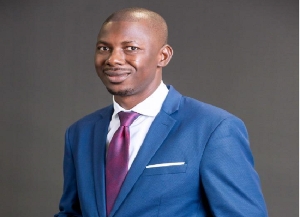- Home - Sports
- Soccer Portal
- Archived Sports News
- Sports Videos | TV
- Year In Review
- Sports Photos
- Sports Headlines
- Boxing
- Athletics
- Basketball
- Bodybuilding
- Cricket
- Golf
- Handball
- Hockey
- Martial Arts
- Tennis
- Volleyball
- Other Sports

General News of Wednesday, 26 February 2003
Source: gna
Major Aquah's widow calls for fresh probe
Tearful Mrs Jemima Acquah, wife of the late Major Sam Acquah, a retired army major killed together with the three high court judges on 30 June 1982 , on Tuesday passionately appealed to the National Reconciliation Commission (NRC) to institute fresh investigations into the circumstances leading to her husband's death.
She tendered a copy of the report by the Special Investigations Board (SIB) instituted by the then Provisional National Defence Council (PNDC) and said she believed that the state sponsored the killing of her husband.
Led in evidence by Allotei Mingle, Mrs Acquah narrated the story of how her husband was abducted on Wednesday, 30 June 1982, and the announcement of his death later by the then Chairman of the PNDC, Flt. Lt. Jerry John Rawlings on national television.
She now stays in a rented premise at the SSNIT Flats, Dansoman in Accra . Mrs Acquah said she was staying with her husband at Dzorwulu, when on that fateful day a man dressed in smock entered their premises at about 2145 hours and invited Major Acquah who was then having supper into a vehicle to be taken to Burma Camp for questioning.
She said her pleas to the man to allow her husband to finish his meal were to no avail and the stranger pulled a pistol and threatened to kill Major Acquah if he resisted. The man would also not allow her to fetch a pair of sandals for her husband as he whisked him away.
Later another man in smock emerged and reassured her that her husband would be brought back safely after the interrogation. She said she hardly slept that night. The following day she reported the abduction to Major Acquah's cousin, one Major Keelson at Burma Camp and their Pastor at Odorkor.
From that day crowds came to the house to sympathise with her and the children, one of whom was then three years old. Mrs. Acquah said she had no news of the whereabouts of her husband till the Sunday when Chairman Rawlings announced on Television that her husband had been found dead and that a full-scale investigation would be instituted into the death.
Mrs Acquah said she collapsed upon hearing of the sad news. She said police CID later came to interrogate her about the cause of her husband's death. Mrs Acquah stated that she had still not got the convincing outcome of the trial of the murder of her husband, who was found dead together with three former High Court Judges.
Mrs. Acquah said the Ghana Industrial Holding Corporation (GIHOC) where her husband worked, gave the family a funeral donation and allowed her to stay at their Dzorwulu residence for six months after which she was asked to leave.
She said the family to which SSNIT had rented the Dzowulu house asked her and the children to stay on until they found their present residence at Dansoman. Mrs Acquah said neither the Ghana Armed Forces (GAF) nor GIHOC had paid to them any gratuity or end of service benefit of her late husband.
She said she had to finance her children's education through proceeds from selling basic wares and rented property of her late husband. The family of her late husband collected all the husband's property and the care of the children was no business of theirs.
When Uborr Dalafu Labal II, asked about how she felt of the loss, Mrs. Acquah said it was most disturbing to her when her children asked her to provide something to them and she could not afford.
She said it was disturbing when the children remarked that if their father were to be alive he would have provided their needs willingly. She said the Lord had ordered forgiveness and she had forgiven all those who offended them but stressed that the killing of her husband had to be investigated again to ascertain the truth.
George Asare Garbrah, a former Deputy Minister of Defence in Limann's Administration, told the Commission of how he and his driver were tortured at Takoradi Air Force Base following the 31 December 1981 coup.
He said he had gone to the Western Region to check on cocoa smuggling when the coup took place and he obeyed an order from the new PNDC regime for all political functionaries to report to the nearest Police station.
He reported at Yaakese the day after the take-over, and was transported to Takoradi. Garbrah said 100,000 cedis belonging to the Customs, Excise and Preventive Service (CEPS), 10,000 cedis being his personal money and 5,000 cedis and a pistol belonging to his brother were all collected from him.
He said at the Takoradi Air Force Base he and his driver were stripped to their panties, a lot of water was poured on them after which they were led into the guardroom where they were severely beaten.
Later they were sent to Sekondi cells where the beatings continued. They were transferred to the Cantonments Police Station the following day where they were made to sleep on the bare floor for the night.
Garbrah at this point sat still and wiped tears from his eyes. He said they were transported in a bus to the Usher Fort Cells and then to Nsawam Prisons. He said he was detained in an over-crowded cell and spoke of how one day a prisoner died slowly.
Garbrah, who is an ex-pilot and a dentist, said they were removed from the Prisons and brought to Gondar Barracks. At the barracks, they were made to sit on freshly quarried stone and soldiers put some sand in his eyes. He was sent to 37 Military Hospital for treatment, but this has affected his sight and his profession as a pilot.
He said back in the Nsawam Prisons, Professor Kofi Awoonor, then Special Assistant to the PNDC Chairman and one Awotwe, who interrogated him told him that as investigators, they would throw everything they had against him.
He said Prof. Awoonor made him to sit on his hands and when a fly buzzed around him, he teased him to kill the fly. Garbrah said he spent two years in prison and developed high blood pressure. He said his timber business collapsed and his licence as a pilot also got missing. He registered his strong abhorrence to military coups.
Hearing continues.










